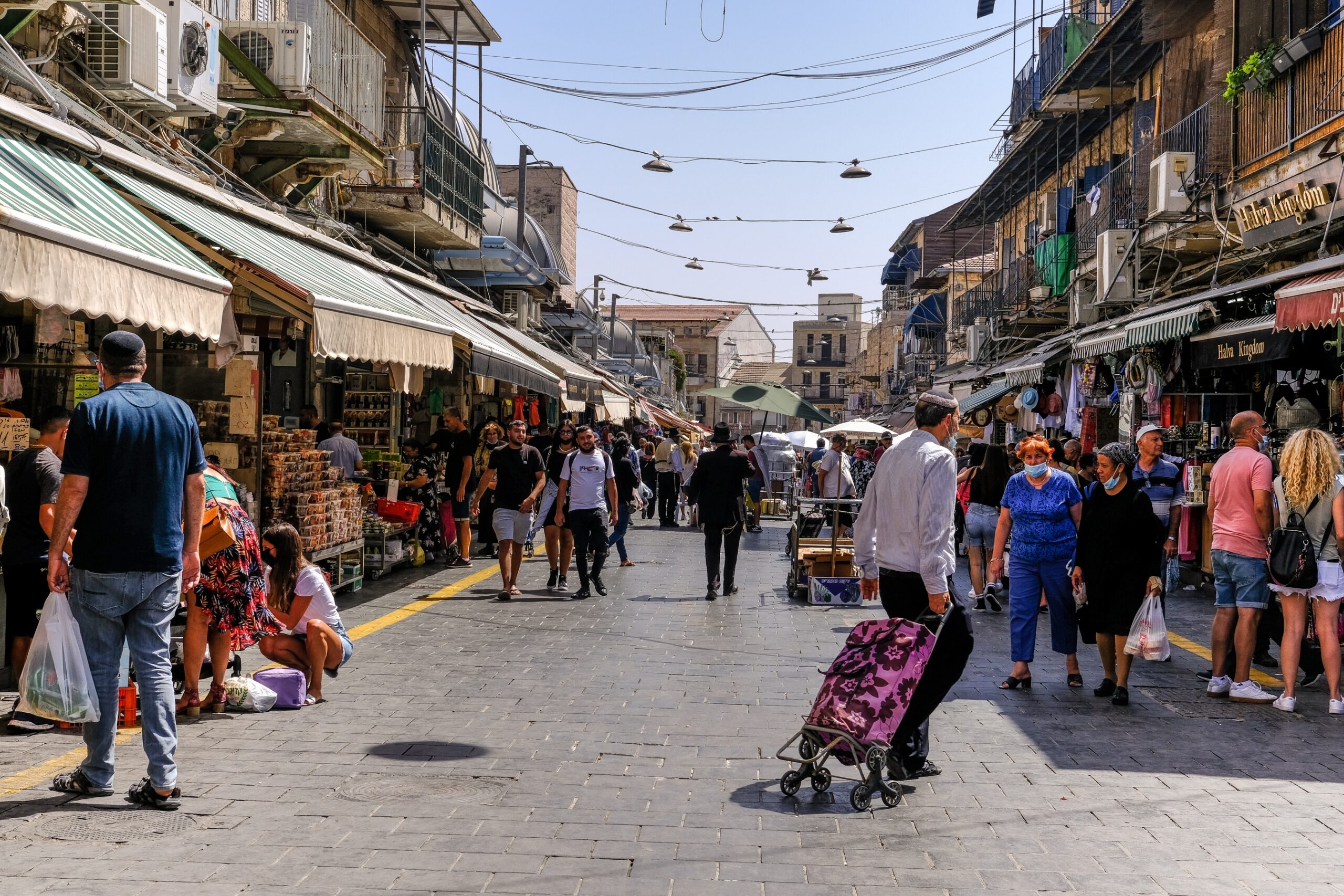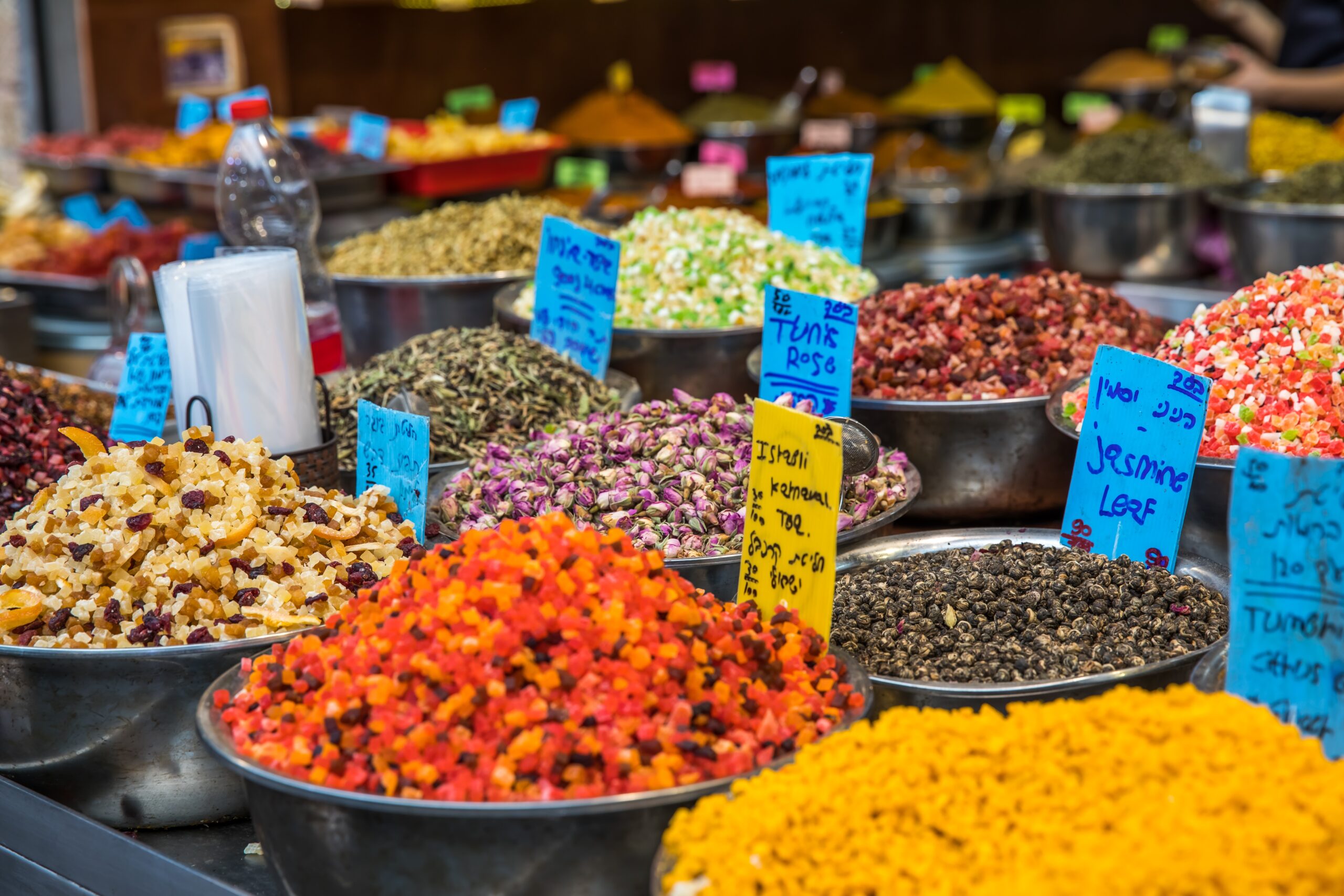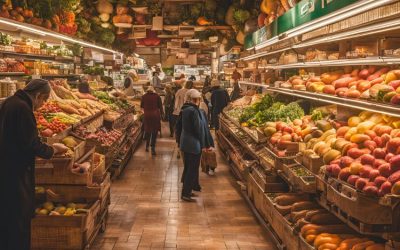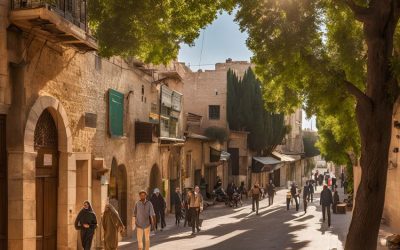
The Mahane Yehuda Shuk (also spelled Machane Yehuda) is a bazaar/farmer’s market that has existed as we know it since the 1920s and had evolved from the Beit Yaakov Market that was established in the late 1800s. Today, it’s a vibrant, thriving marketplace filled with fruit/vegetable stands, butchers, fishmongers, cheese shops, bakeries, artisanal foods, bars, restaurants/cafes, and more.
How to Shop at Mahane Yehuda Market:
Any fruit, vegetable, and herb that’s in season will be offered at competitive market prices – at most stalls, at least. There may be a rare produce vendor that accepts credit cards, but you will get a better deal and be better off just paying with cash instead. For the most part, prices listed are by kilo (2.2lbs), but you’ll want to watch out for the occasional vendor that lists their prices either by the 100 gram (גרם) or half kilo (חצי קילו).
When you’re headed to the butcher, make sure you have an idea ahead of time what you want to buy and take a look at a chart to understand how the cut you’re used to is referred to here – they will cut up the meat different from what you’re likely used to. They will ask you if and how you’d like your meat cut; This is a good opportunity to let them do some of the hard work for you – either cut into cubes for stew or flattened out for quick cooking/breading, don’t be shy – it’s included in the price of your purchase. Also, you can ask them to grind up turkey or chicken breast, so even if you don’t see what you’re looking for – just ask!
Take Note! Deliveries of fresh produce and fresh meat will typically come in on Monday or Tuesday – Sunday has leftovers from the previous week and can spoil quickly.
There are bakeries and bread stands all around. If you’re a bit of a germophobe, don’t hesitate to tell them you want something hidden from the open air a bit more. Some places offer specialty breads, and you’ll pay a bit more there, but for a good deal, go to the ones where pallets of pitas are plopped down while piping hot. For a real treat, though, just follow your nose to the scent of chocolate or other warm sugar and you’ll find what you’re looking for.
Other specialty food shops are all around the market, and whether you’re in the mood for cheese, halva, spices, honey, coffee, tea, eggs, or gluten-free delights, your best shot of finding what your heart desires is going to be at Mahane Yehuda market.
In the shuk, there are a number of stands with jewelry, souvenirs, household goods, and packaged foods. The latter can be purchased at grocery stores and are less likely to be expired, but more likely to be cheaper. Jewelry, Judaica and souvenirs are likely something you’ll want to avoid buying here – as the quality is generally questionable, as well as the price. There may be exceptions, but I have yet to see them. Household goods are, contrastingly, often a better deal, but you’ll often find that non-disposable items and higher-ticket ones are not always in the best condition. Always double-check, don’t feel obligated to buy, and don’t hesitate to negotiate.




